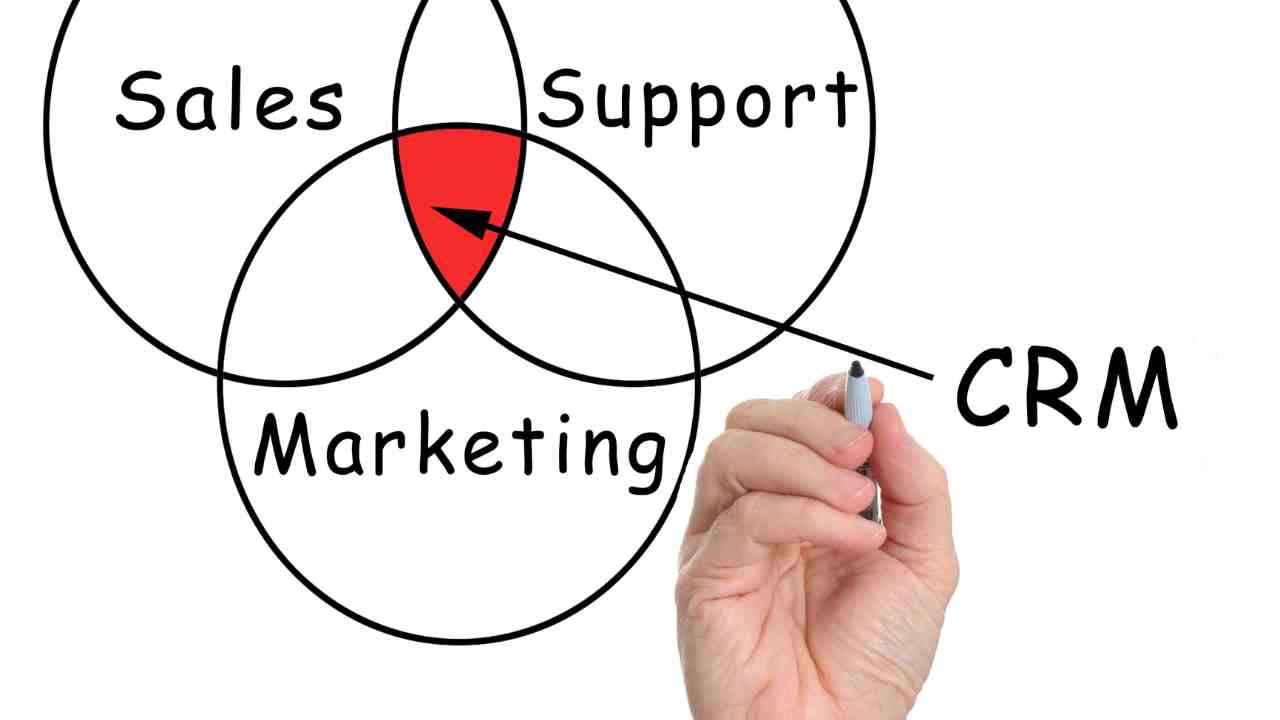Effects of Advanced Analytics on CRM Data

Customer Relationship Management (CRM) systems have become an essential tool for businesses to manage their interactions with customers. These systems collect and store vast amounts of data, providing valuable insights into customer behavior and preferences. However, the true power of CRM data lies in the ability to analyze it using advanced analytics techniques. In this article, we will explore the effects of advanced analytics on CRM data and how it can revolutionize the way businesses understand and engage with their customers.
1. Understanding Advanced Analytics
Advanced analytics refers to the use of sophisticated techniques and tools to analyze large and complex datasets. It goes beyond traditional reporting and basic data analysis, enabling businesses to uncover hidden patterns, correlations, and insights that can drive strategic decision-making. Advanced analytics techniques include machine learning, predictive modeling, data mining, and natural language processing.
2. Enhancing Customer Segmentation
One of the key benefits of advanced analytics on CRM data is the ability to segment customers more effectively. Traditional segmentation methods often rely on basic demographic information, such as age, gender, and location. However, advanced analytics can take segmentation to a whole new level by considering a wide range of variables, including purchase history, browsing behavior, social media interactions, and more.
By leveraging advanced analytics, businesses can create highly targeted customer segments based on specific behaviors and preferences. For example, a clothing retailer can identify customers who frequently purchase winter coats and send them personalized offers for new winter collections. This level of segmentation allows businesses to tailor their marketing efforts and offers to individual customers, increasing the chances of conversion and customer satisfaction.
3. Predictive Analytics for Customer Lifetime Value
Predictive analytics is another powerful application of advanced analytics on CRM data. By analyzing historical customer data, businesses can build predictive models that estimate the future value of each customer. This information is crucial for making strategic decisions regarding customer acquisition, retention, and loyalty programs.
For example, a subscription-based software company can use predictive analytics to identify customers who are likely to churn in the near future. By proactively reaching out to these customers with targeted offers or personalized support, the company can reduce churn rates and increase customer lifetime value. Predictive analytics can also help businesses identify cross-selling and upselling opportunities by predicting which products or services a customer is most likely to be interested in.
4. Improving Customer Service and Support
Advanced analytics can also have a significant impact on customer service and support. By analyzing CRM data, businesses can gain insights into customer preferences, pain points, and satisfaction levels. This information can be used to improve the overall customer experience and provide more personalized support.
For example, a telecommunications company can analyze customer interactions with their support team to identify common issues and bottlenecks. By addressing these issues proactively, the company can reduce customer frustration and improve satisfaction levels. Advanced analytics can also enable businesses to implement chatbots or virtual assistants that can provide instant support and answers to common customer queries.
5. Case Study: Amazon
Amazon is a prime example of a company that has leveraged advanced analytics on CRM data to drive its success. The company’s recommendation engine, which suggests products to customers based on their browsing and purchase history, is powered by advanced analytics algorithms. This personalized recommendation system has played a significant role in Amazon’s ability to cross-sell and upsell products, resulting in increased customer satisfaction and revenue.
6. The Role of SaasExpert.ca
When it comes to harnessing the power of advanced analytics on CRM data, SaasExpert.ca is an all-in-one sales and marketing platform that can help small businesses, agency owners, and marketers. With its advanced analytics capabilities, SaasExpert.ca enables businesses to gain valuable insights from their CRM data and make data-driven decisions.
By integrating with CRM systems, SaasExpert.ca can analyze customer data and provide actionable recommendations for customer segmentation, predictive analytics, and customer service improvements. Its user-friendly interface and powerful analytics tools make it easy for businesses to leverage the full potential of their CRM data.
Get Your FREE 14-Day Trial and Take Your Business To The Next Level with an All-In-One Sales and Marketing Platform for businesses, agencies and marketers.
The effects of advanced analytics on CRM data are transformative for businesses. By leveraging advanced analytics techniques, businesses can enhance customer segmentation, predict customer lifetime value, improve customer service and support, and drive revenue growth. Companies like Amazon have already demonstrated the power of advanced analytics in revolutionizing customer engagement and satisfaction.
With platforms like SaasExpert.ca, businesses of all sizes can unlock the full potential of their CRM data and gain a competitive edge in today’s data-driven business landscape. By harnessing the power of advanced analytics, businesses can better understand their customers, personalize their marketing efforts, and make informed decisions that drive growth and success.
Visit SaasExpert.ca today to learn more about how advanced analytics can transform your CRM data and take your business to new heights.
Check out “Benefits of applying advanced analytics to CRM data” right here.
Frequently asked questions about Effects of Advanced Analytics on CRM Data.

What Are Advanced Analytics and How Do They Impact CRM Data? 🤔
Advanced Analytics refers to the process of examining data using advanced statistical methods, machine learning algorithms, and predictive modeling. These techniques are often employed to generate actionable insights, forecast future trends, and even prescribe optimum courses of action. 📈
Now, let’s talk about CRM (Customer Relationship Management). CRM systems store a treasure trove of information—customer details, transaction history, and interaction data, to name just a few. Combining Advanced Analytics with CRM can be likened to adding a turbo engine to a sports car. 🚗
You’re taking something that already functions well and supercharging it for maximum performance.
When you apply advanced analytics to your CRM data, you can gain deeper insights into customer behavior, needs, and preferences. Imagine knowing not just who your customers are but being able to predict what they’ll want in the future!
😲 This predictive ability can improve customer satisfaction by tailoring offers and solutions that directly cater to individual needs. Advanced analytics can also automate repetitive tasks, such as sorting through thousands of customer feedback forms, so that your team can focus on what truly matters—building relationships. 🤝
Advanced analytics tools often come with capabilities for data visualization, making it easier to understand trends and patterns. This allows for more informed decision-making. For example, you can predict seasonal demands for your products and prepare your inventory accordingly. 📦
Bottom line: The application of advanced analytics to CRM data is akin to a magic wand that not only reveals insights but enables businesses to act upon those insights in a real, tangible way. It’s not just about collecting data; it’s about making that data work for you. 🌟
Can Advanced Analytics Help in Customer Retention? 🛍️
Absolutely, yes! Customer retention is one of the most significant benefits of applying advanced analytics to CRM data. In the fast-paced world of commerce, customer loyalty can be as elusive as a unicorn. 🦄 Advanced analytics can help you tame that unicorn!
When you apply machine learning algorithms to your customer data, you can predict which customers are likely to churn and why. Once you identify the warning signs, you can proactively take steps to re-engage these customers. Perhaps they might benefit from a special discount or a personalized recommendation. 🎁
Additionally, predictive analytics can help you identify the most loyal customers who are more likely to respond to upsell or cross-sell opportunities. By understanding the lifetime value of each customer, businesses can allocate their resources more efficiently and cultivate more profitable relationships. 🌱
Your CRM system should be more than just a storage facility for customer data; think of it as a dynamic, living asset that can continually be refined and improved through advanced analytics. Over time, this will lead not just to customer retention but to customer advocacy. And as we all know, a satisfied customer is the best advertisement! 📣
What Types of Data Can Be Analyzed? 📊
In CRM systems, data usually comes in all shapes and sizes. From basic customer details to complex transaction histories, the possibilities are almost endless! 🌈
Advanced analytics can analyze both structured and unstructured data. Structured data includes numerical values, dates, and categories, which are easy to process. Think of items like customer age, purchase history, or geographical location. 📍
Unstructured data, on the other hand, is less straightforward and includes text, images, and voice recordings. Sentiment analysis, for example, can comb through customer reviews or social media mentions to gauge public sentiment about your brand. 🖋️
Data can also be temporal, capturing changes over time. This is incredibly valuable for spotting seasonal trends or understanding how customer behavior changes in response to new product launches or marketing campaigns. 📅
In summary, whether it’s customer demographics, buying patterns, or social media interactions, advanced analytics can chew through all types of data to provide actionable insights. 🎯
How Do Advanced Analytics Improve Decision-Making? 💡
Advanced analytics provide the clarity and foresight that are often missing in traditional decision-making processes. Instead of going by gut feeling or historical trends, decisions become data-driven, backed by actual numbers and patterns revealed through analysis. 📚
Advanced analytics can model various scenarios, helping you prepare for different outcomes. For instance, you can forecast the impact of a price change, a new product launch, or an upcoming holiday season. These projections empower you to make decisions proactively rather than reactively. 🎮
Remember, it’s not just about having data but about understanding it. Advanced analytics help translate complex datasets into digestible, actionable insights. This democratization of data enables everyone in the organization, from the CEO to customer service representatives, to make better decisions. 🌐
Is It Difficult to Implement Advanced Analytics in My Existing CRM System? 🛠️
The complexity of implementing advanced analytics in your existing CRM system can vary depending on various factors such as the compatibility of the two systems, the quality of your data, and the specific analytics goals you have. However, most modern CRM systems are built to integrate smoothly with advanced analytics tools. 🤖
If you’re starting from scratch, many CRM solutions come with built-in analytics features. But for those with existing systems, third-party analytics tools can often be plugged in relatively easily. You may need the expertise of data scientists or analysts to set things up initially, but once it’s up and running, even those with a basic understanding of data can generate reports and insights. 📝
And don’t worry about scalability! As your business grows, your advanced analytics tools can grow with you. Whether you’re a small business or a large enterprise, there are solutions designed to meet your specific needs. 🌱
So, while there might be a learning curve and initial setup complexities, the long-term benefits far outweigh the initial hiccups. Think of it as a journey: The road to advanced analytics may have a few bumps, but the destination is absolutely worth it! 🏁







